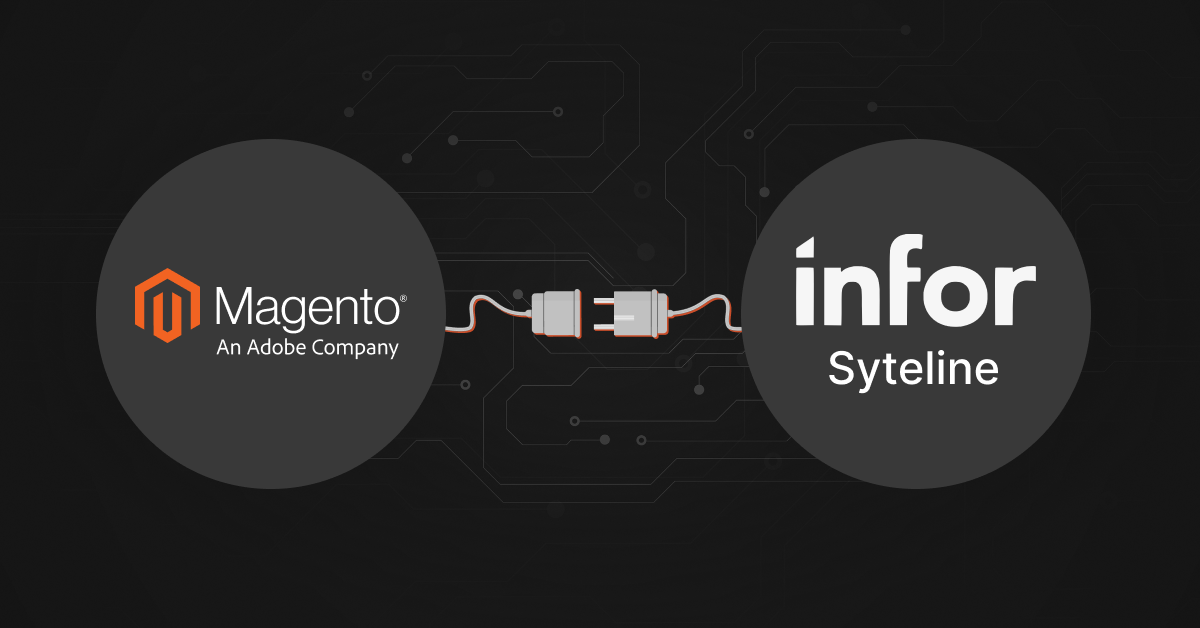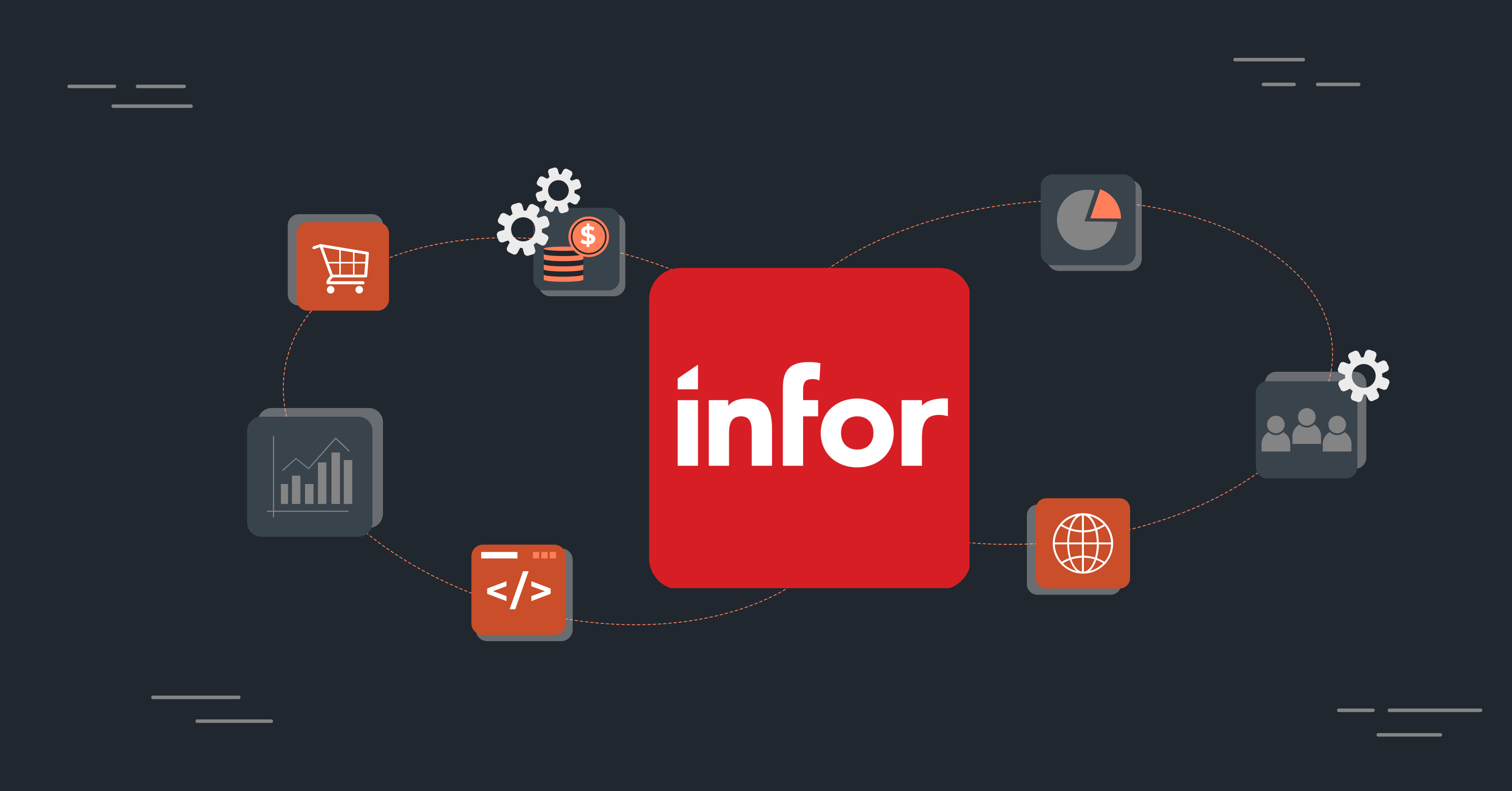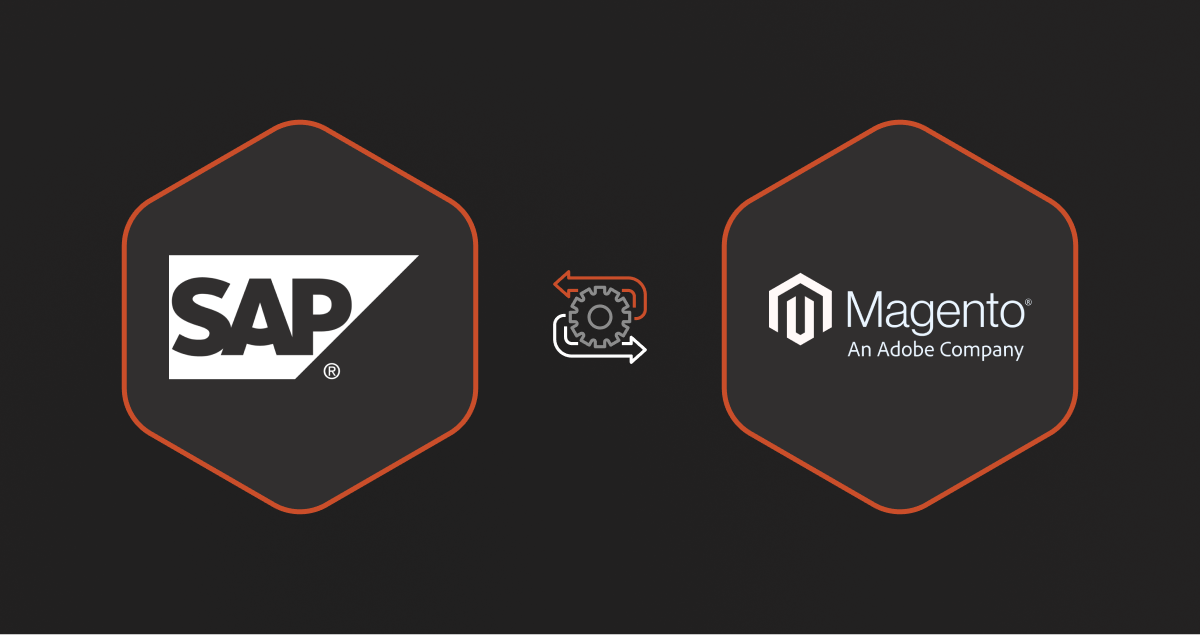Magento SyteLine integration refers to the process of connecting and synchronizing the front-end Magento ecommerce platform with back-end SyteLine ERP platform. In eCommerce, the backend handles orders, payments, and inventory. Meanwhile, an ERP system manages tasks like accounting and supply chain.
When you integrate the two, they work together seamlessly and allow your team to access and centrally manage orders, inventory, and customer data in real-time.
Magento SyteLine Integration Methods
Integrations can be unpredictable since no two systems are identical. You can consider the following options.
Point-to-Point Integration (P2P)
How It Works: Point integration creates a direct link between Magento and Infor SyteLine, enabling seamless data exchange without the need for third-party applications.
Advantages of P2P: This approach offers near-real-time data transfer with minimal delays and straightforward data mapping. It’s an excellent option for businesses that need quick, accurate data synchronization.
Things to Consider: While effective, this method may demand more development effort and ongoing maintenance as your systems change. It’s efficient but might not offer the flexibility needed for future scalability.
Custom Integration
How It Works: Custom API integration involves writing unique code to connect SyteLine and Magento through their APIs, offering complete control over the data mapping and integration processes.
Benefits of Custom API Integration: This approach allows for deep customization, enabling businesses to create data flows specifically suited to their needs. It also provides a high level of control over data security.
Things to Consider: Custom integration requires advanced development skills and ongoing maintenance to handle API updates. Businesses must ensure they have the necessary technical expertise to manage this approach.
iPaaS (Integration Platform as a Service)
How It Works: iPaaS platform acts as a cloud-based middleware, enabling Magento SyteLine integration without the need for custom code. It provides a unified platform for managing and automating data flows between the two systems.
Benefits of iPaaS Middleware Integration: iPaaS tools such as DCKAP Integrator simplifies the integration process by offering pre-built connectors and automation tools, reducing the need for extensive development. It allows for easy scalability and can adapt to future changes in business processes with minimal effort.
Things to Consider: While iPaaS offers flexibility and convenience, it may come with subscription costs and require regular updates.
Also see: Top 15 iPaaS Solutions & Platforms
Benefits Of Magento Infor SyteLine Integration
Let us take a quick look at some of the benefits of integrating your ecommerce platform and ERP software.
Improved Efficiency
Integrating Magento and SyteLine automates data transfers, reduces manual monotonous tasks, and streamlines operations across departments. This leads to faster order processing, real-time updates on inventory, and seamless coordination between sales, finance, and fulfillment teams.
Additionally, automation of routine tasks leads to a reduction in labor costs.
Accurate Data
By syncing data between your eCommerce and ERP systems, you ensure consistent, error-free information across all platforms. This minimizes discrepancies between sales orders, inventory levels, and financial records, helping you make informed business decisions.
Optimized Inventory
With integration, you gain real-time visibility into your inventory levels. This helps you avoid overstocking or running out of stock, ensuring timely order fulfillment. You can also optimize inventory based on customer demand, sales trends, and seasonal fluctuations.
Better Customer Satisfaction
When customer data, order history, and product information are in sync, you can provide a more personalized shopping experience. Faster order processing, accurate delivery times, and easy access to outstanding customer service improve satisfaction and ensure greater customer loyalty.
Scalability
As your business grows, this integration allows you to scale efficiently. Whether you’re adding new sales channels, expanding into new markets, or increasing order volumes.
Related read: Infor Integration: Outcomes, Methods and More
Challenges And Ways to Manage Magento Infor SyteLine Integration
Despite its benefits, Magento Infor integration presents various common implementation challenges.
- Data inconsistencies: Ensuring that data is synchronized correctly between the two systems can be difficult without proper planning. Using an experienced solution provider like DCKAP Integrator can help manage data transformation challenges.
- Customization needs: Every business may have specific needs that require tailored integration solutions, making the process complex. Middleware platforms and APIs can provide flexibility to handle different requirements.
- Ongoing support: Maintaining the integration post-launch is critical to avoid data flow interruptions. Businesses need to ensure proper project management and continuous monitoring to handle updates and new features.
Best Practices for Magento SyteLine Integration
To ensure successful Magento integration, consider the following best practices.
- Define clear objectives: Set clear goals and expectations for what you want to achieve from the integration. These can be improved operational efficiency or enhanced customer experience.
- Use middleware for faster integration: Middleware platforms like DCKAP can speed up the integration process and offer a more cost-effective solution.
- Data security: Prioritize data security, especially customer and business information. CConsider implementing real-time monitoring and secure APIs.
- Test extensively: Before launching the integration, conduct extensive testing to identify any potential data inconsistencies or integration errors.
Recommended read: Magento ERP Integration Explained
DCKAP Integrator: ERP Integration for Manufacturers & Distributors
DCKAP Integrator is a cloud-native, custom ERP integration platform that simplifies and expedites the Magento SyteLine integration process. A preferred choice of distribution businesses, it acts as middleware, ensuring real-time data synchronization between Magento and SyteLine. It also allows businesses to synchronize sales orders, inventory data, customer details, and product information efficiently, ensuring seamless business operations.
Seamless multi-platform integration
DCKAP Integrator connects online store like Magento with ERP systems such as Infor SyteLine. It offers compatibility with multiple platforms, ensuring data flows seamlessly across systems.
Pre-built connectors
It includes pre-built connectors for popular platforms like Magento, ERP, CRM, and PIM systems. This reduces development time and simplifies the integration process.
Real-time data synchronization
The integrator ensures real-time syncing of crucial business data such as inventory, orders, customer information, and product details between the online storefront and ERP system.
Customization and flexibility
It provides the ability to customize integrations to meet specific business needs. This includes the option to fine-tune data flows and add additional functionality according to business processes.
Automated data mapping
The integration tool enables automated mapping of data fields between systems, eliminating manual, error-prone tasks.
Scalability
DCKAP Integrator is designed to scale with the business. As companies grow, the integration can accommodate increasing data volumes and support additional platforms or systems.
Secure Data Transfer
The platform ensures secure data transmission between systems, protecting sensitive business information during integration.
Error handling and alerts
Built-in error handling mechanisms notify users of issues with data synchronization, ensuring quick troubleshooting and minimizing downtime.
Conclusion
Integrating Magento with SyteLine offers businesses a way to streamline their operations, enhance customer experience, and improve operational efficiency. By integrating these two platforms, businesses like yours can stay competitive and provide a smoother customer journey, from order placement to fulfillment.While challenges exist, following best practices and choosing the right integration partner can ensure seamless and successful integration. Schedule a demo with us today.
Contents




